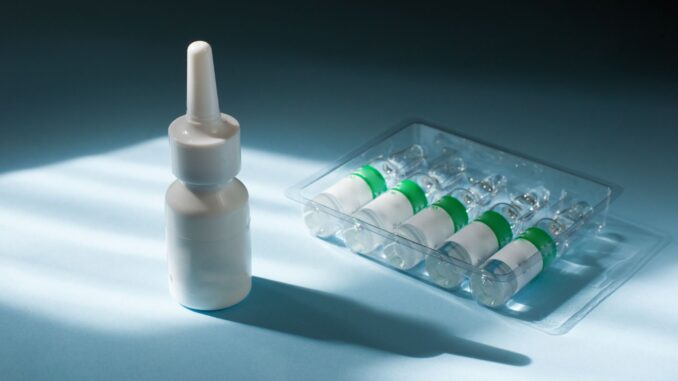
CyanVac LLC and its subsidiary, Blue Lake Biotechnology, Inc., clinical-stage biopharmaceutical companies developing vaccines using a proprietary transformational parainfluenza virus 5 (PIV5)-based vector, today announced the enrollment of the first participant in a Phase 1 clinical trial of their CVXGA1 intranasal COVID-19 vaccine in Rochester, NY. CVXGA1 is based on an attenuated strain of PIV5 (also known as canine parainfluenza virus) and expresses the S protein of SARS-CoV-2. In preclinical studies, CVXGA1, delivered intranasally as a single dose in each nostril, induces mucosal antibody responses and cell-mediated immune responses as well as serum antibody responses, and has been effective in protecting multiple animal species from SARS-CoV-2 viral infection and in blocking SARS-CoV-2 viral transmission. Delivered through the nose without injections, the companies’ vaccines have the potential to facilitate delivery of vaccines to broad populations, including pediatric and needle-hesitant groups.
“The enrollment of the first participant in our first-in-human Phase 1 clinical trial marks another important milestone in our rapid growth as a vaccine company,” said Dr. Biao He, founder and President of CyanVac and Blue Lake Biotechnology. “Our aim is to have a single-dose intranasal vaccine that can be used as a booster for existing vaccines, as well as a vaccine that can serve as a primary vaccine to countries that are struggling to acquire enough vaccine doses for their populations.”
“CyanVac’s investigational vaccine has the potential to be both a needle-free vaccine and one that could block disease transmission,” said Dr. Paul Spearman of the Cincinnati Children’s Hospital Medical Center. “For some individuals this may help overcome vaccine hesitancy, and even more importantly it could halt the virus at its point of entry and prevent further spread of COVID-19.”
About the Phase 1 Clinical Trial
The trial is a multi-center, open-label trial to evaluate the safety, reactogenicity and immunogenicity of CVXGA1 administered intranasally as a single dose to adults in two sequential age cohorts. In the first cohort, 40 participants aged 18 to 55 years will receive a single dose of vaccine by intranasal spray, escalating from low dose (106 PFU) to high dose (107 PFU). In the second cohort, 40 participants aged 56 to 75 years will receive a single dose of vaccine, escalating from low dose to high dose. Safety data will be collected and analyzed, as will serum and mucosal antibody responses, and cellular immune responses to the SARS-CoV-2 S protein.

Leave a Reply